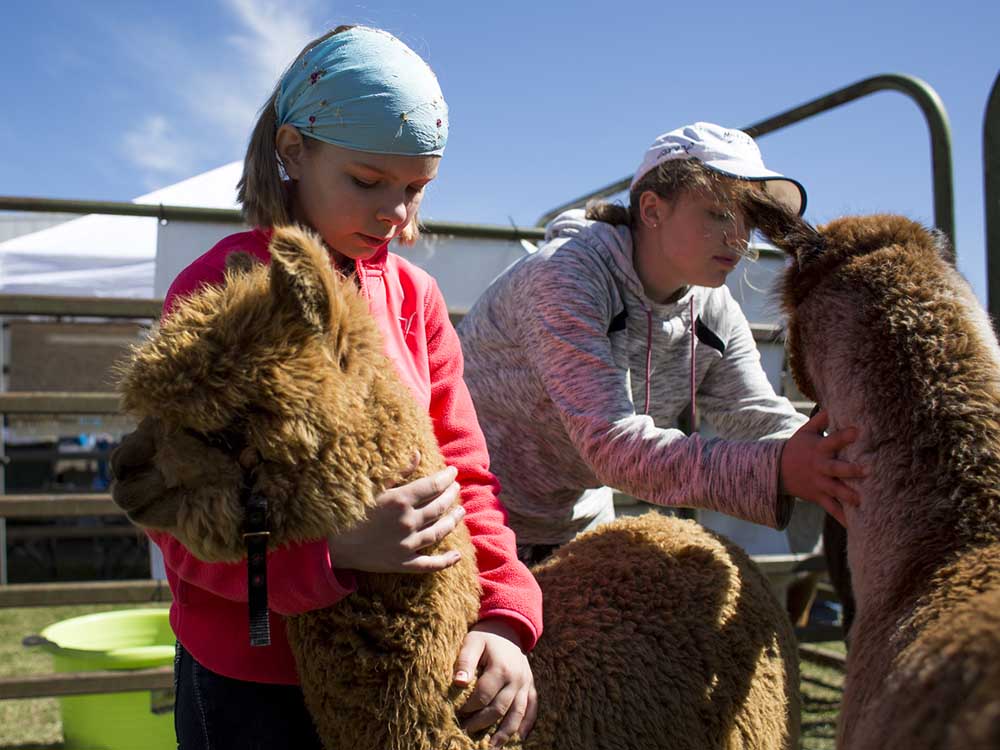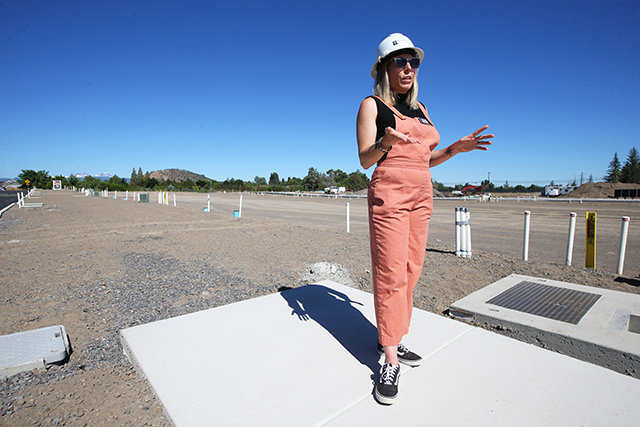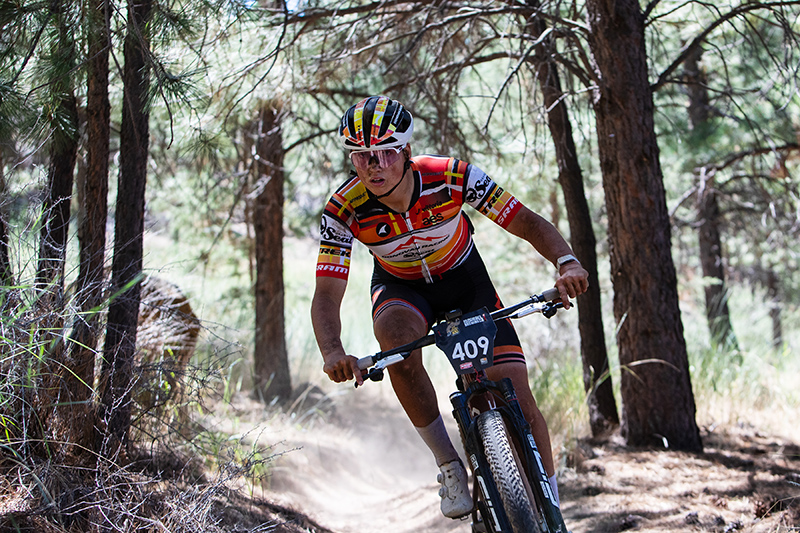Animals and their coats on display in Prineville
Published 6:14 am Tuesday, March 31, 2015

- Photos by Tess Freeman / The BulletinMeghan Pieper, 9, left, and her neighbor Sahara Lucas, 11, of Sisters play with their two favorite alpacas Paladin, left, and Typhoon during Fiber Market Day in Prineville.
PRINEVILLE — Coats of many fibers dotted the greens of the Crook County Fairgrounds on Saturday at Fiber Market Day.
Vendors gathered to sell their rugs, blankets, yarns and sweaters and show some of the animals that provided the fiber. The Pieper family, owners of Panorama Ranch between Sisters and Tumalo, was among the participants. Darrell and Barbara Pieper, both 81, started the ranch in 2000. Their son, Scott, his wife, Julie, and their daughter, Meghan, 10, round out the rest of the generations living and working on the 53-acre ranch.
Trending
The Piepers brought along three of their 28 alpacas: Dawn, a white female, Typhoon, a rose gray male and Paladin, a brown male. All three are 10 months old — weaned and ready for sale. Depending on whom you spoke to.
“Paladin’s not for sale,” said Meghan, reminding her mom and giving the animal a loving stroke.
Julie Pieper, 49, admits she, too, still thinks the animals are cute.
“Oh absolutely,” said Julie, looking at her furry creatures. “It’s just fun — bottom line, it’s fun … they all have their individual personalties.”
The personalities can be friendly or loving. Still, the animals don’t always get along.
The Piepers confirmed alpacas do spit, although, not usually at humans.
Trending
“They will spit at each other,” Julie Pieper said. “It’s, ‘get out of my face.’”
But friendly or not, like all livestock, there is a cycle of life, and sometimes that life includes a sale.
And many of the owners at Saturday’s event had themselves gone through phases of life before starting to raise fiber animals.
Darrell Pieper was a engineer for the design and construction of airports around the world before he “retired” and began raising alpacas. He served on engineering teams for airports in Los Angeles, Pakistan and Saudi Arabia. Scott and Julie Pieper owned an environmental geochemistry business with mobile laboratories. From 1994 to 2004, they served a lot of Air Force bases, cleaning up chemicals when the bases would be shut down. But when Darrell and Barbara Pieper asked their son and daughter-in-law if they would help with a ranch in Central Oregon, Scott and Julie agreed.
The ranch lifestyle and caring for alpacas have proved to be relaxing. Their busiest time is in June when the animals give birth and are sheared. Still, with a smaller ranch like Panorama, the shearing takes just one, long day and the help of an expert traveling shearer who visits each year.
“We’ll start at 8 a.m. and be done by 6 p.m.,” Julie said. “And that’s a short lunch break.”
The shearing is done by laying the animal on its side, starting at the top of the hind leg, rolling the fiber over up to the back bone, flipping the animal to its other side and shearing to the top of the other hind leg.
From there, raw fleece is made into bats, which are large rolls of the fiber. The bats are stretched into roving, like thick strips, and the roving is spun into yarn.
With the yarn, a person can knit, crochet or weave among other uses.
Michele Long, 63, is chairwoman for the High Desert Wool Growers that puts on Fiber Market Day. There, she sold yarn from the 50 Angora goats, Gotland sheep and Shetland sheep on her 5-acre farm, Raven’s Beak, in Powell Butte.
Long said she and her husband, Gary, like the Piepers, had different careers before becoming fiber farmers. Reaching retirement in Tucson, Arizona, a few years back, they realized summers were too hot spent outside instead of in the air-conditioned buildings they used to work in.
Central Oregon sounded like a good solution.
“We came through Bend and liked it,” Michele Long said. The Longs have stayed since 2010.
— Reporter: 541-383-0325,
kfisicaro@bendbulletin.com
The ranch lifestyle and caring for alpacas have proved to be relaxing. Their busiest time is in June when the animals give birth and are sheared.








